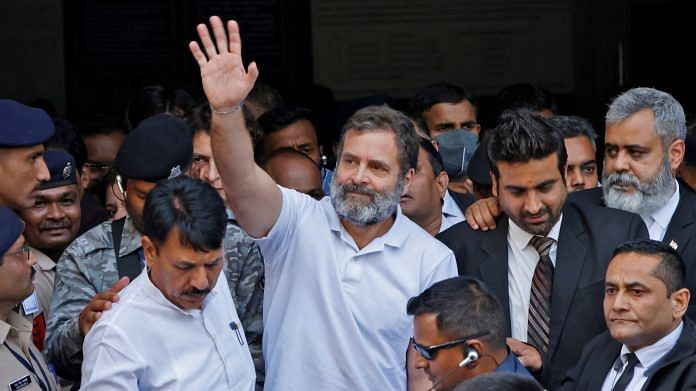When a magistrate in Surat sentenced Rahul Gandhi to two years’ imprisonment for defaming those with the surname ‘Modi’, it kicked off a political slugfest that is still playing out in the media and in courts. In the resulting political hullabaloo, however, few paused to ask a more fundamental question – even if guilty of defamation, why should a person be imprisoned? Imposing a penalty should be sufficient to settle a dispute between two individuals? Why should taxpayer-funded jail infrastructure, which is already bursting at its seams, be used to host someone who does not pose a physical threat to others?
In a distant past, jail terms for defaming someone – known as ‘criminal defamation’ – had some societal value. In medieval England, public insults would often result in physical brawls, which in turn led to a commotion that threatened the physical safety of local communities. For this reason, Britain introduced laws that punished defamation with up to two years in jail and transplanted it to most of its colonial conquests. In India, criminal defamation became a part of Section 499 of the Indian Penal Code (IPC).
However, duels of honour are now forgotten memories and jail terms for defamation no longer necessary. Which is why Britain itself abolished the law in 2009. Kenya, with which we share our British colonial heritage, also held criminal defamation as unconstitutional in 2017, saying that the ‘traumatising gamut of arrest, detention, remand and trial’ in a criminal case had the effect of restricting speech and promoting self-censorship. While India is not the only country to have criminal defamation still on the statute, the law takes a particularly draconian form in our country because of the slow pace of the judicial process.
Also read: Rahul Gandhi disqualification poses question. Who owns Constitution: Parliament or courts?
State-sanctioned power of the powerful
Since the process itself is often the punishment, the powerful have frequently used the threat of criminal defamation to silence critics, especially those they know may not have the appetite for the arduous judicial process. Between 2011 and 2016, for example, the Tamil Nadu government led by AIADMK’s J Jayalalithaa had filed 213 such cases against political opponents and media houses, including those that speculated about her health – a matter of utmost public importance. Similarly, former aviation minister Praful Patel filed a criminal defamation case against author Jitender Bhargava for his book The Descent of Air India, which looked at the NCP leader’s role in the airline’s decline. The publisher subsequently withdrew the book, thus shutting off an important discussion on what ailed our national carrier.
When used like this, criminal defamation has served as a shield that prevents discussions on governments’ actions and policies. It has also been used by India’s powerful elite to silence detractors. For example, former Union Minister MJ Akbar invoked criminal defamation against women who had accused him of sexual misconduct. While a court dropped the charges two years later, the very real possibility of incarceration and litigation costs could prevent many such victims from coming forward in future.
There are other ways in which the powerful further tilt the scales of justice in their favour. They often initiate proceedings in courts that are convenient for them, but which may be thousands of kilometres away for the defendant. The institutional lacunae of the law embolden them further. For example, speaking truth is not an adequate defence in such cases, unless the accused can show that doing so was in ‘public interest’. Similarly, our laws allow public servants, when discharging their public functions, to use the government functionary to fight a criminal defamation case against ordinary citizens.
While courts have often served as a bulwark against unchecked use of criminal defamation, they have also sometimes acted as allies of those with bruised egos. In 2016, for example, the Supreme Court upheld the constitutional validity of criminal defamation and elevated the ‘right to reputation’ to a fundamental right, thus placing it at a similar pedestal as the right to free speech. But the contest we see in courts is between the right to reputation of the wealthy and powerful against the right to free speech of a victim or journalist. A country whose constitution has an underlying egalitarian ethos should not be encouraging this unequal battle.
India today sits at the crossroads of social mobility. Recent economic growth has created a new and aspirational middle class that has the education and exposure to question those in power. India must not perpetuate the power of its old elite by holding on to criminal defamation any longer. Those who feel they have been maligned can always pursue civil defamation, that is, monetary compensation for the reputational harm caused. While the elite of our country have also misused civil defamation laws by demanding exorbitant compensation, courts have usually stepped in to rein in the worst excesses. The most powerful tool in our government’s arsenal – incarceration – must be used for crimes that are most harmful for society. Defamation is simply not one of those.
Subhashish Bhadra is author of ‘Caged Tiger: How Too Much Government is Holding Indians Back’. He tweets @Subhashish30. Views are personal.
(Edited by Prashant)



